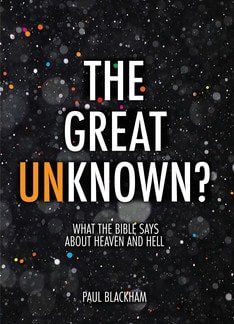This book brings us an exploration of biblical themes relating to heaven and hell. From its phraseology, it seems derived from spoken addresses, but there are pitfalls as well as advantages in turning preached sermons into book form.
On the one hand, it is rich in biblical quotation and allusion, drawing from a variety of Scriptures colourfully explained and applied. It comes across as freshly meditated on, with scriptural themes cross-relating to other biblical material in an interesting manner.
On the other hand — and what is perhaps a sermonic device — the over-emphasising of certain points for effect, doesn’t stand up well to the scrutiny of reading. Biblical theology must always check with systematic theology to keep things in safe boundaries.
It may be sermonically legitimate to speak of the cherubim’s ‘flaming sword’ in Genesis 3:24 as a ‘wall of fire,’ but when the author persists in using this phrase well beyond that allusion and states that there is a wall of fire between heaven and earth, one wonders exactly what he has in mind and what his proof texts might be.
Similarly, he seems to milk the phrase ‘without form and void’ in Genesis 1:2 to imply that death (and other categories associated with the Fall) were present at the very beginning of Creation — something surely ruled out by Scriptures like Job 30:4-7?
Also, this is more than a bite-sized book and, therefore, a reasonably thorough approach to the subject might be expected. But this is not the case here. For example, hell is frequently mentioned as a place of outer darkness, but there is no explanation why hell is also called a place of everlasting fire.
And are the ‘weeping’ and ‘gnashing teeth’ of sinners in hell just expressions of raging anger? The author is silent about the actual pain arising from the flaming fire of God’s wrath? What about Luke 16:24? This is a difficult subject, yet nothing is gained by implying that hell is even a bit less hellish than the Bible describes it. In this connection, a statement interacting in detail with annihilationism would have been welcome.
In all, this volume could be useful to preachers for suggesting ideas and approaches to the subject; there are some helpful chapters, such as God’s judgment of the Canaanites through Joshua. Yet, I do not especially recommend it for the general reader.
Roger Fay
Ripon




